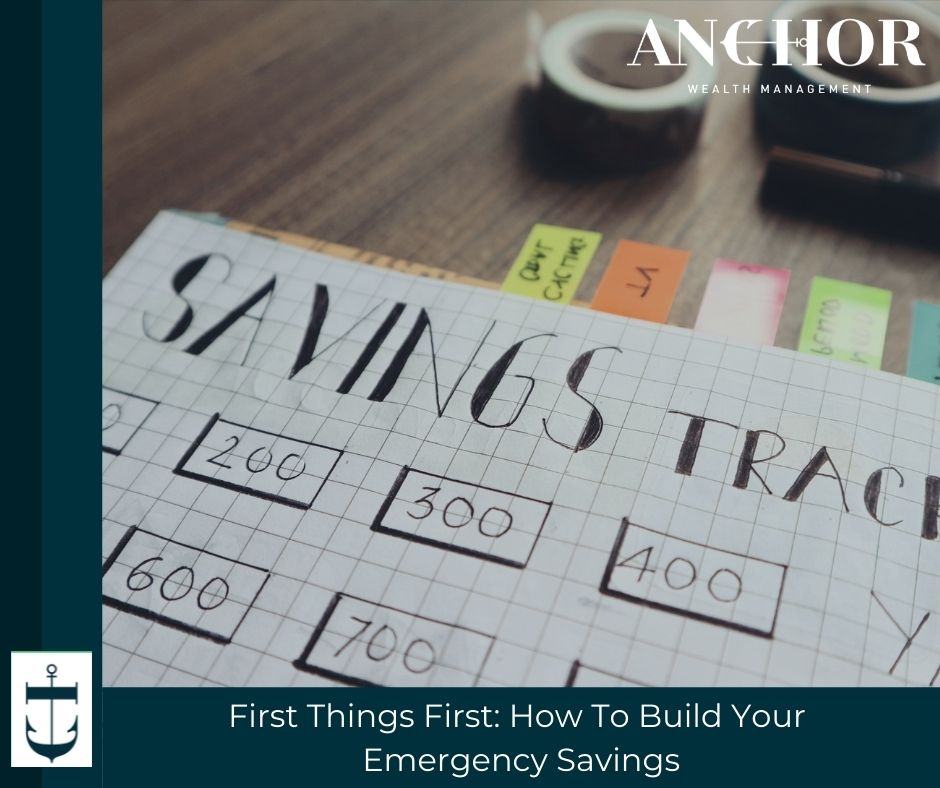
There are many aspects and components to financial planning, from savings and investments to long-term care and life insurance needs. All of these pieces together form a comprehensive financial plan that will help you meet your goals for the future.
The wealth advisors at Anchor Wealth Management offer comprehensive financial planning services that ensure both your short-term and your long-term financial goals are met. Our financial plans start with the end in mind to ensure you don’t outlive your money and that you can have the quality of life that you choose. Below, we’ll start with the basics: forming a solid emergency fund. Contact us today for a free financial consultation!
HOW TO BEGIN AN EMERGENCY FUND
An emergency fund is an essential piece of your financial well-being and is the first piece of your comprehensive financial plan. An emergency fund is money you set aside in a bank account that can cover unexpected big expenses. Some of these include:
- Car repairs
- Home appliance repairs, such as a water heater or a furnace
- Medical expenses
- Times of unemployment
The purpose of an emergency fund is to have the money available to you so you don’t have to take out a loan or resort to using a high-interest credit card that could end up costing you in the long run. An emergency fund also gives you peace of mind should one of these expenses come up.
There are different levels of an emergency fund. The bare minimum is $1000. This amount should cover most unexpected expenses. Once you are debt-free besides your mortgage, Anchor Wealth Management recommends that you have at least three to six months of your household expenses in an emergency fund. This covers the biggest emergency of all — unexpected unemployment.
Our financial advisors realize that it can be hard to know where to begin to save. Here are easy ways to start your emergency fund.
- Create a separate account. By keeping your emergency funds separate from your other funds, you won’t accidentally spend it.
- Start small. Putting something in every month is better than not putting anything in. Commit to some number that is small to you that you won’t notice. For instance, maybe you want to save $20 a week. Put that in your savings and over the course of a year you’ll have over $1000. You can automate this as well, or set up an automatic withdrawal from your checking to this separate savings account to make it easier.
- Cut out the little things. There are a lot of little cuts we can make in our daily lives that can add up quickly. You can cut your $5 latte once or twice a week, lower your home’s thermostat by a degree or two, or clip coupons. All of these, when put into savings, will add up quickly.
CHOOSE ANCHOR WEALTH MANAGEMENT FOR YOUR COMPREHENSIVE FINANCIAL PLAN
Our wealth advisors at Anchor Wealth Management offer personalized financial plans to meet your goals, from being debt-free to retiring at the age of 65. Our investment advisors have years of experience in helping you with college and estate planning, retirement planning, and long-term care. We also offer small business retirement planning and term life insurance. Contact either our Rockford or Lanark office today for a free consultation!

